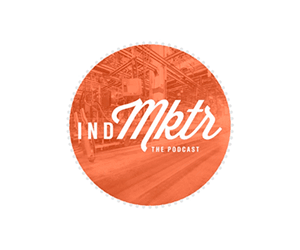Whether you are exposed to business risk through exports or if growth has already been stymied due to the strong dollar (now even stronger), it takes a hardy constitution to stomach last month’s Chinese stock market meltdown, which started crashing mid June.
Many industrial companies cut their marketing budgets when the economy hits a speed bump, essentially cutting off their fuel supply for continued growth. Manufacturers and industrial suppliers have lived through many recessions, so it’s understandable that they may want to reduce expenses when markets are in flux or the U.S. dollar is gaining value.
That’s a mistake.
Smart business people still spend money even if investors are fleeing the markets to buy U.S. treasury bonds, instead of stocks, which is generally perceived to be the safe bet.
Markets rise and fall, yet manufacturers continue to fill orders. In fact, Minnesota manufacturers, are more optimistic in their firms’ futures than at any point since 2009, according to the seventh annual The State of Manufacturing®, a survey research project sponsored by Enterprise Minnesota and partners.
For those businesses concerned about the economy, they most likely have already lost market share, whether they know it yet or not. Why? Because the smart manufacturer knows that, while four out of five of his competitors will reduce spending during economic challenges, he’s going to ramp up his marketing spend.
Is Your Marketing an Expense or an Investment?
When you want to define a marketing expense, think of actions taken. When you buy an ad or attend a trade show, the value is derived from the paid-for activity. There’s little residual value from these marketing events, other than brand awareness. Typically, the sales manager authorizing the expense will want to see some direct effect on sales.
Defining a marketing investment is a little different. Think of the buyer’s journey or the life cycle of your customer and the tools that monitor and measure their unique touchpoints with your company. Take these tangible tools, for example:
- Business website — This represents a long-term investment. You can measure every eyeball and click.
- Marketing automation platform — Technology can identify the life cycle of a business prospect and score their activity based on their readiness to buy.
- Social media presence — Sharing and engaging with your audience allows you to amplify your brand and assists in converting buyers to product evangelists.
The digital economy has changed how we measure marketing. In the pre-Internet era, traditional media was difficult, if not impossible, to measure. Often, all big brands could point to was how many eyeballs their message was in front of and measure market share.
Today, every online action can be measured and correlated to a return on investment (ROI). That requires that businesses know the cost of customer acquisition and their lifetime value (LTV) — also not easy to define. But once you do, you’ll be able to know whether a 3% or a 30% ROI is needed to determine if an online marketing campaign is profitable.
Are You Making Excuses?
Excuse No. 1 — “I can’t afford it.”
There’s no such thing as expensive marketing, but there are bad investments. Every dollar you spend on marketing should return more than a dollar. That’s the simple formula. You can find out how much you can truly afford to spend here.
Excuse No. 2 — “I need to save for a rainy day.”
There’s another saying that counters that thinking: “You can’t save your way to prosperity.” The smarter approach is to increase your marketing efforts because, most likely, your competitors are cutting back. If you attack while your competition retrenches, your marketing agility will pay dividends.
Excuse No. 3 — “Marketers tell me what I want to hear.”
Sadly, Seth Godin, author and keynote speaker, may have clouded the minds of many with his provocative book title, All Marketers Are Liars. On the surface, this attitude doesn’t help the cause of marketing professionals. What he really meant was great marketers are great storytellers — they tell stories we want to believe. Therein lies (no pun intended) the difference.
Is Your Brand a Business Asset?
Don’t think that branding only applies to companies like Coca-Cola or Nike. Your reputation, goodwill and service agreements all make up your brand. Brands, unlike physical assets, can appreciate when managed correctly. Remember: Good marketing should create an appreciable asset, such as a qualified customer database or a growing digital footprint.
“Marketing may be considered an expense on your P&L, but the brand it supports is your greatest asset,” said Steve McKee, president of McKee Wallwork & Company.
Stop making excuses and invest in the kind of great storytelling that will make your marketing stand out. If you don’t care about your brand, why would your customers?
If you’re still skeptical of marketing’s ability to yield tangible assets and drive attributable revenue, find out how Industrial Strength Marketing helped one industrial supplier generate $2.2 million in orders quoted.




